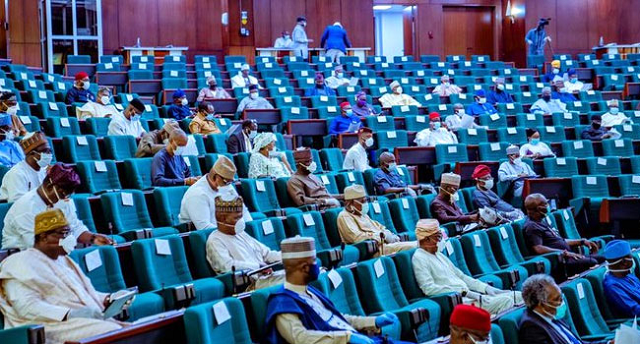The House of Representatives has given approval for the amendment of the Central Bank of Nigeria (CBN) Act, marking a significant step forward as the bill successfully passed its Second Reading. The sponsor of the bill, Francis Waive, outlined that the proposed amendments aim to address critical aspects of the CBN Act, focusing on enhancing the apex bank’s effectiveness, transparency, and accountability.
During the plenary session, Waive, representing Ughelli North/South/Udu Federal Constituency in Delta State, emphasized the necessity of amending Section 6 of the CBN Act. He specifically highlighted the importance of separating the Chairman of the Board of the apex bank from the CBN Governor to bolster independence and oversight.
Waive explained, “The proposed amendment introduces a crucial change in the composition of the CBN’s Board of Directors as outlined in Section 6 of the Principal Act. The proposed amendment adds a new paragraph, Section 6(2)(a), which mandates that the Chairman of the Board shall be a Former Governor of the CBN, a former Chairman of the Bank, or a former Managing Director of a bank.”
According to the lawmaker, this shift in composition ensures that the Chairman has a background outside of the current CBN leadership, promoting a more effective system of checks and balances within the governance structure. The separation of the Chairman from the Governor aims to enhance accountability and reduce the concentration of power, fostering unbiased oversight of the CBN’s operations.
Moreover, the amendment seeks to prevent groupthink and minimize the potential for conflicts of interest. Waive stated, “An independent Chairman can serve as a symbol of impartiality and transparency, thereby increasing public confidence in the CBN’s operations. This is particularly important in preserving the integrity of monetary and financial policies.”
In addition to separating the roles of Chairman and Governor, the proposed amendment also addresses Section 7(1) to enhance the operational efficiency and accountability of the CBN to the Nigerian public. The bill, once enacted, is poised to bring about significant changes to the governance structure of the Central Bank of Nigeria.












